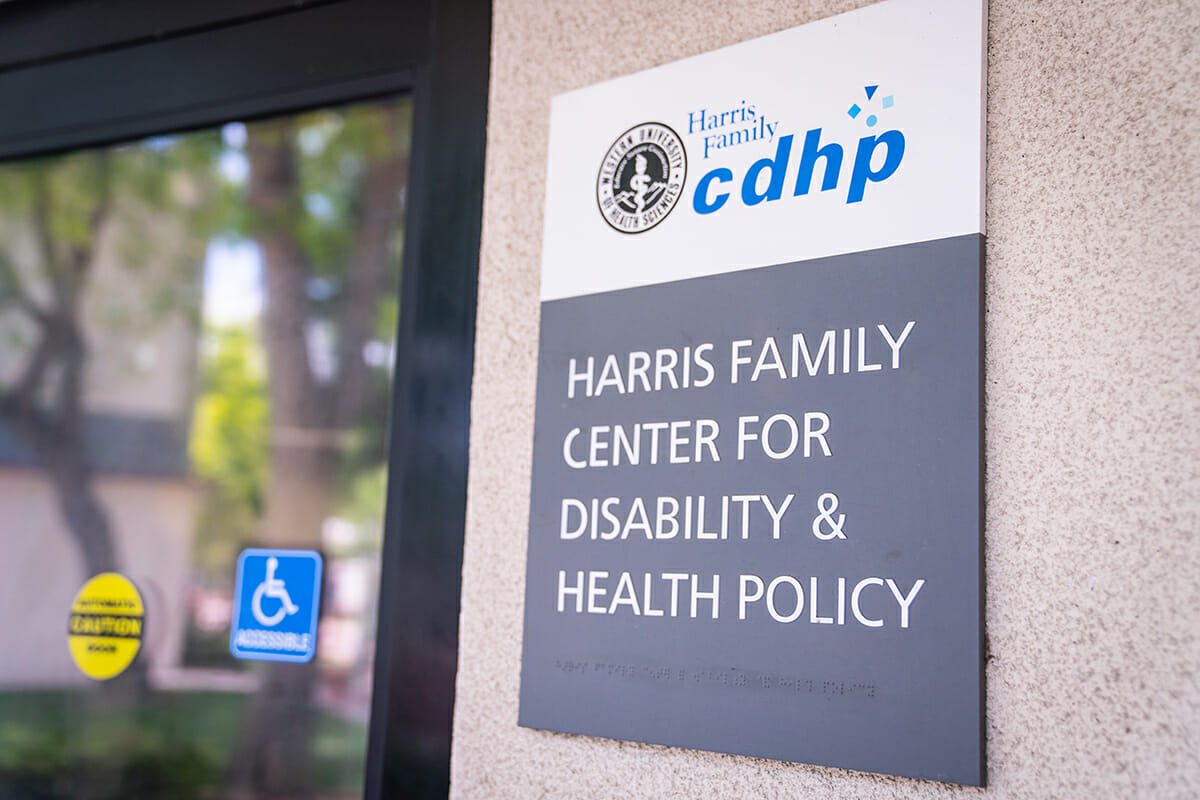
Services
We value the uniqueness of each student as an integral member of our diverse WesternU community by ensuring equity and diversity for students with disabilities through support services and accommodations.

CDHP is here to support you!
The following is a list of potential accommodations, which may be granted based on the student’s disability and how it impacts them in a post-graduate environment. Please note that this is not an exhaustive list of potential accommodations.
- Accessible Furniture
- Adaptive Equipment
- Alternative Media
- ASL Interpreting
- Assistive Technology
- Computer Assisted Real-time Translation (CART)
- Exam (extended time, distraction-reduced, private room, reader/scribe, computer, large print, Braille).
- Intermediaries
- Alternative Seating
- Notetaking Services (Peer and Electronic)
Accommodations and adjustments are not considered reasonable if the accommodation results in a fundamental alteration of the program or an essential academic requirement; or 2) the accommodation would impose undue financial or administrative hardship on the institution.
The Harris Family Center for Disability and Health Policy (CDHP) recognizes the rights of students with disabilities to maintain the confidentiality of their disability-related information and determine who receives it. Disability-related information provided to the CDHP is considered an educational record; therefore, it falls under the protection of the Family Educational Rights and Privacy Act (FERPA). FERPA permits the CDHP to share information about the impact of a disability and accommodation eligibility with other University school officials who have a legitimate educational interest. A school official includes but is not limited to faculty and instructional staff, academic deans, the provost, and security. Legitimate educational interest means the school official needs to review an educational record or receive educational record information to fulfill their professional responsibilities.
CDHP values the privacy of its students and the confidentiality of the disability-related information entrusted to us. As such, CDHP limits disclosures of disability-related information to those which are minimally necessary for the delivery of services/accommodations of the student, or for some other permissible basis. Examples of a permissible basis include but are not limited to:
- Disclosure based on a legitimate educational reason:
- Disclosure to appropriate faculty and staff of your status as a student registered with CDHP and your approved accommodations to coordinate and administer accommodations.
- Disclosure to a WesternU school official in relation to a student filed complaint, appeal, grievance, or lawsuit against a University action, office, or employee.
- Disclosure to the proper authorities to prevent/control injury or harm to the student or to others.
- Disclosure subject to a court order.
- Disclosure based on the student’s written permission.
The degree of information that is required by university constituents regarding your disability is directly related to the nature of the accommodations and services required. Sharing this information does not require student consent under FERPA.
Disclosure of educational record information to a University official having a legitimate educational interest does not, however, constitute authorization for that person to transmit, share, or disclose any or all of that information to a third party who does not have a legitimate educational interest. When disability-related information may need to be shared with a third party, a student may sign a written consent form giving CDHP permission to discuss the disability with a third party, such as parents who require further information. Information will not be released to a third party without written consent from the student unless it is required by federal or state law or when a student may be at risk of harm to self or others.
Only authorized staff within CDHP have immediate access to student records. Disability documentation is maintained in locked cabinets, in locked offices, and on secure servers and is not part of the student’s permanent educational record.
In accordance with WesternU policy, CDHP student records are destroyed five years after a student’s graduation or date of last attendance. Students with disabilities have a right to review their file. A student who wishes to review their file must schedule an appointment with the Director of CDHP.

